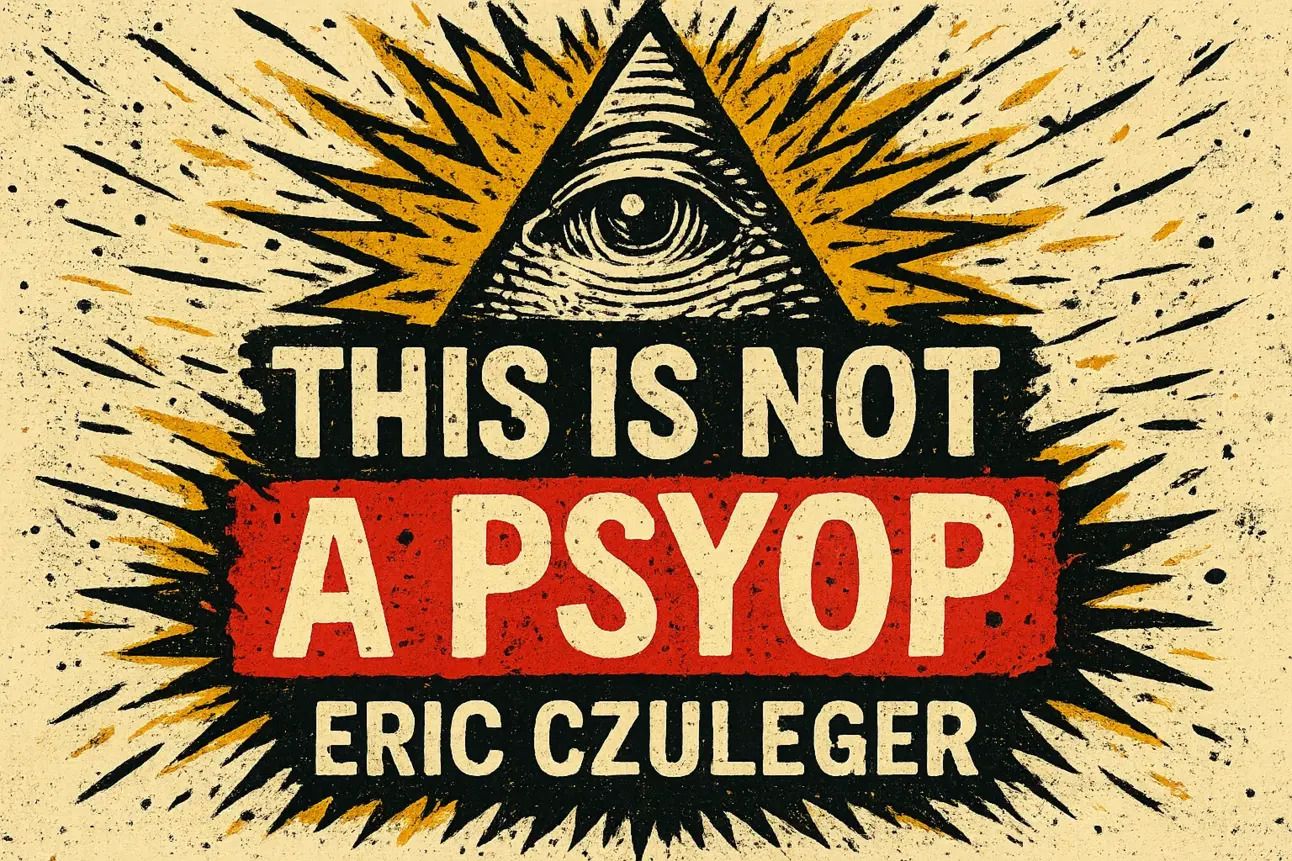Lies kill.
"Saddam Hussein has weapons of mass destruction." This falsehood transformed American foreign policy, justified forever war, and fractured long-held alliances. Once the first round was fired, a new chaotic reality was born. The truth can set us free, but it can also contain the worst demons of human nature.
Unfortunately, the truth is becoming an increasingly elusive game to hunt. This is because it has never been easier to generate false realities.
Consider “Operation Neptune.” In the 1960s, Soviet intelligence operative Ivan Agayants and his team spent months forging fake documents, aging a phony Nazi steamer trunk, and planting the fugazi in a lake—all to ensure journalists “discovered” it.
The so-called “Fake in the Lake” operation decayed trust in the newly appointed government in Berlin. The Soviet active measures agent famously stated, “If they didn't have freedom of the press, we would have to invent it for them.”
Imagine what his team could do today, with only the click of a button. Despite the evolution of information warfare, the U.S. government has no comprehensive strategy to defend its information space.
We need one—now.
I’ve seen what happens when a country is starved of the truth. I spent half a decade living in Albania, a country that lived in the handcrafted reality of dictator Enver Hoxha. Video of his funeral in 1991 shows citizens wailing in operatic mourning for their great leader, fearing punishment if their sorrow was not up to party standards. When their crocodile tears dried, they faced a stark reality—an impoverished nation waking up from a decades-long illusion.
Democracy, independent institutions, and a free press were once our bulwarks against this kind of false reality. But cracks are beginning to form, and it's time to answer the hardest question of our age:
How does the United States fight misinformation without compromising its values?
Answering this starts with recognizing that an unprotected information space is a national security risk. American institutions are built on the assumption that truth wins out in the long run. That assumption is wrong, because beguiling lies travel faster than considered facts.
In a world of deepfakes, psychometric manipulation, and large language models, the truth must be sought out. Its delivery to the masses must be protected while false realities are suppressed. Our adversaries know we are not doing this.
During the 2023 Maui fires, Chinese operatives flooded social media with stories claiming the U.S. government had intentionally set the fires. Iran has attempted similar operations, using “hack-and-leak” strategies to undermine democratic elections. Russia’s “Doppelganger” campaign directly funds influencers to spread pro-Kremlin narratives.
We are dangerously close to an epidemic of lies. The difference between the U.S. and Albania is that a single dictator doesn't yet control the flow of information. Instead, we face thousands of actors, both foreign and domestic, manipulating the truth. Worse, we are dismantling the very tools we need to fight back.
In 2022, the Disinformation Governance Board was created to counteract foreign influence campaigns. It was abandoned within months. The Global Engagement Center, which was tasked with fighting foreign propaganda, met a similar fate. The current administration invokes free speech while threatening peaceful protests. These are strategic victories for those who want America confused, divided, and weak.
Critics will say that a government-led effort to combat disinformation threatens free speech. They aren't wrong. The solution cannot be censorship. Nor can it be digital literacy classes—unless we want to pretend the D.A.R.E. program won the War on Drugs.
Doing nothing is not an option.
A well-regulated press was once enough to serve as a firewall against mass deception. That firewall is gone. We need a new strategy.
Every American citizen and foreign actor with an internet connection is now a participant in the domestic information space. Without a common foundation of facts, democracy cannot function. The first step is admitting that information security is as critical as cybersecurity. The second step is including the information space as a discrete portion of the public National Security Strategy and the National Defense Strategy.
These documents contain forward-looking strategies for defending the Arctic but ignore the battle raging for our hearts, minds, and votes.
Other countries are already ahead of us. The European Union has implemented the Digital Services Act, which enforces content moderation. NATO has recognized information warfare as a key component of modern conflict. Meanwhile, in the U.S., each party fights over its definition of free speech while supporters entrench themselves around their version of the truth.
If we don’t act now, we won’t have to worry about foreign adversaries attacking us.
We’ll do it to ourselves.
Because when facts are just another battleground, the greatest casualty is reality itself.

